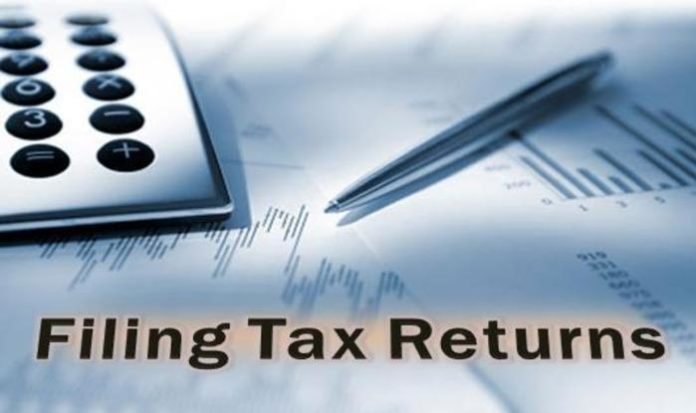Income Tax Return Filing

Haven’t Filed Your Income Tax for 2022? Here’s What to Do
If you haven’t filed your income tax for 2022 yet, don’t worry—you still have time! The Federal Board of Revenue (FBR) has extended the deadline for filing income tax returns until October 31, 2022.
Key Steps to File Your Taxes
- Review FBR’s Instructions: Familiarize yourself with the guidelines provided by FBR for filing taxes.
- Register Online: Get yourself registered with FBR’s online enrollment system.
- Submit Tax Documents: Ensure you have all your tax-related documents ready for submission.
Understanding the Income Tax Return
An income tax return offers a comprehensive overview of your earnings, profits, and losses for the year. If your annual income is PKR 400,000 or more, you are required to file your tax returns in Pakistan.
Given the complexities and time constraints of modern life, managing your tax data and filing your income tax return might seem daunting. This guide will simplify the process and provide you with everything you need to know to file your income tax return efficiently.
Who Needs to File an Income Tax Return?
You are required to file an income tax return if:
- You own a company.
- Your annual income exceeds PKR 400,000.
- You manage a non-profit organization [clause (36) of section 2].
- You operate a welfare institution [clause (58) of Part I of the Second Schedule].
- You were charged tax in any of the two preceding tax years.
- You are claiming a loss carried forward.
- You own immovable property (250 square yards or more).
- You own a flat within municipal limits, a Cantonment, Islamabad Capital Territory, or a rating area.
- You own a motor vehicle with an engine capacity over 1000 CC.
- You have a National Tax Number.
- You have an electricity connection with annual bills exceeding PKR 500,000.
- You are registered with any chamber of commerce, industry, trade, business association, market committee, or any professional body.
- Your income falls between PKR 300,000 and PKR 400,000 from a business in a tax year.
What Is Tax Return Filing?
A tax return is a form submitted to a tax authority detailing income, expenses, and other relevant tax information. In Pakistan, this form is submitted to the Federal Board of Revenue (FBR) and includes details about the individual’s or business’s income and taxes owed for the year. Both businesses and salaried employees (government and private) must file their income tax returns and register their NTN numbers. Salaried employees are exempt from providing a wealth statement.
Sources of Income:
- Salary: Income from employment.
- Business and Profession: Profits and revenues.
- Capital Gains & Property: Income from investments and real estate.
- Other: Dividends, royalties, lottery winnings, etc.
Benefits of Being a Filer in Pakistan
FBR is increasing enforcement against non-filers. Non-filers face higher tax rates:
- Dividend Income: 30% for non-filers vs. 15% for filers.
- Bank Profit: 30% for non-filers vs. 15% for filers.
- Property Transactions: 2% deduction for non-filers vs. 1% for filers.
- Vehicle Registration: Lower rates for filers.
Required Documents for Becoming a Filer
To register as a filer and e-file your income tax return, you need the following documents:
- Phone Number: With a SIM registered against your CNIC.
- Email Address.
- Tax Deduction Certificate: From your employer.
- Business Ownership Proof: If applicable.
- List of Personal Assets: Along with their purchase value.
- Recent Utility Bill: For business premises, if applicable (not older than 3 months).
How to File Income Tax in Pakistan: Step-by-Step
Login to the Iris Portal: Access FBR’s online portal for tax filing.
- Enter Username and Password: If you forget your password, use the ‘Forgot Password’ option to recover it.
Access the Declaration Menu: Click on ‘Declaration’ and choose the form for filing voluntarily.
Enter Tax Year: Specify the tax year in the Period tab.
Employment Section:
- Enter Annual Salary: Input your total annual income in the designated field.
Calculate and Submit:
- Click Calculate: Compute the tax based on entered details.
- Adjustable Tax: Fill in fields for deductible allowances, such as Zakat or donations.
Tax Deductions:
- Adjustable Tax Details: Enter taxes already charged during the tax year.
- Federal/Provincial/Corporate Sector Employees: Use respective codes for tax amounts.
- Banking Transactions: Input details for cash withdrawals and savings under specified codes.
Vehicle Details:
- Enter Vehicle Information: Provide E&TD Registration No., make, model, and engine capacity.
Personal Assets:
- Net Assets Information: Enter amounts for previous and current year’s net assets.
- Annual Income: Input details in inflows and outflows fields.
- Reconciled Amount: Ensure the ‘Unreconciled Amount’ is zero before submission.
Payment for Demanded Tax:
- Payment Details: Enter the amount paid and save the information.
Verify and Submit:
- Identity Verification: Input the verification pin provided at registration.
- Final Submission: Click on the ‘Submit’ tab to file your tax return.
Final Date for Filing Income Tax Returns for 2022
The FBR has set October 31 as the deadline for filing income tax returns for the year 2022. All non-corporate taxpayers, including salaried individuals, business owners, and AOPs, must file by this date. Companies with financial years ending on June 30 must file by December 31. Late filers will incur penalties and are required to pay ATL Surcharge Challan to update their Active Taxpayers List status.
- Penalties:
- Individuals: Rs 1,000.
- AOPs: Rs 10,000.
- Companies: Rs 20,000.
Don’t delay! If you haven’t yet filed your income tax returns, seize this opportunity to do so with ease. We hope this guide helps you navigate the process of filing your income tax return in Pakistan. For further assistance or questions, feel free to contact us.
For more detailed information, visit Khan & Co for FAQs, registration guidance, and income tax return filing tips.

